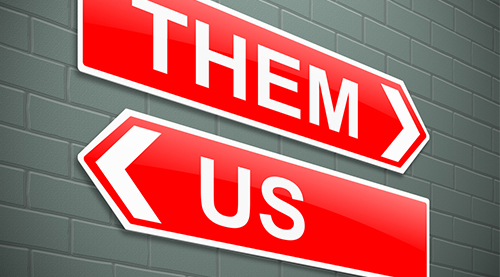
On Halloween costumes and Christmas cups
November 11, 2015
Over the last few days, my social media feed has been dominated by two stories: 1) student protests at the University of Missouri and Yale over the universities’ respective handling of racial incidents and concerns; and 2) Starbuck’s “controversial” holiday cups, which, this year, do not include the words “Merry Christmas” or “Happy Holidays,” or even have pictures of Christmas trees or snowflakes.
(For those of you who are unfamiliar with either or both of these stories, you might want to check out The Atlantic’s coverage.)
At a substantive level, these situations are utterly incomparable: From all accounts, the racist episodes at University of Missouri and Yale, and the concerns of students, are all too real and deserve discussion. The Starbucks situation? Well, I don’t have polite words to describe my thoughts about that particular controversy. But in the Yale and Starbucks stories I find some worrisome parallels, which raise questions about our collective ability to respond to much more challenging situations as the days of economic growth, easy energy, and climate stability draw to an end.
Despite the very real differences in their circumstances, there’s a similarity in the reaction of some of the Yale students and Starbucks customers: the anger, the unwillingness to try to understand or even show basic respect for those who disagree with their views or beliefs, the sense of victimhood. For context, watch the two short video clips below.
Starbucks REMOVED CHRISTMAS from their cups because they hate Jesus … SO I PRANKED THEM … and they HATE IT!!!! #shareUse #MERRYCHRISTMASSTARBUCKSFollow –> Joshua Feuerstein
Posted by Joshua Feuerstein on Thursday, November 5, 2015
I don’t want to unfairly characterize everyone who is upset with Starbucks or the Yale faculty based on the actions of these two particular people. But I also want to avoid the temptation to dismiss both incidences as examples of fringe intolerance from liberal-minded millennial students and right-wing Christians. In reality, there are many people who share their anger and, even more worrisomely, an even larger number of people who vilify and direct anger at them for their views.
If offensive Halloween costumes and throwaway holiday coffee cups can generate this much discord and animosity, what happens when Americans are faced with far more complex and challenging situations? I’m afraid that in the coming months and decades there will be no shortage of these. How we navigate the realities of climate change, the transition from fossil fuels to renewable energy, the Limits to Growth, and economic and racial inequality will come down—more than any other thing—to how we work and communicate together. For there will be no easy answers, nor are there in actuality easy villains or heroes.
In this our mainstream media and politicians are doing us no favors, as they feed on anger, resentment, and an “us vs. them” mentality to capture eyeballs, votes, and dollars. Nor is modern communication technology, which fosters an expectation of immediate gratification and instant answers, while allowing us to filter information and interactions to those that reinforce our cognitive biases.
The only way I can see out of this predicament is to do the opposite of what you and I are doing right now, as I write and you read this: step away from our computers, go out into the “real” world, and seek out interactions with people we don’t know. Empathetic listening is a skill that’s become more rare but, thankfully, all it takes to build it is opportunity and practice. In my own community, a fantastic little nonprofit organization called Listening for a Change offers programs for students and community members that do just that.
In no way, shape, or form do I pretend that all we need to address the very real challenges of today and tomorrow is to just hold hands and sing “Kumbaya.” But if we can’t find a way to listen, learn, and work together with people who don’t share all our values and beliefs, we’re screwed.
Just like there is no “away” when it comes to waste, there are no “other” people when it comes to dealing with the global crises of the 21st century.
image credit: Shutterstock.com/Sam72

Us and them, black and white, right and wrong, sustainable and unsustainable, left and right- pick your favorite opposites. They are poor human inventions to divide and conquer in one form or the other. Reality is in fact a chaotic mix which looks much more grey. Most people are unwilling to put any energy whatsoever into the grey soup to get a definite yes or no out of it. They prefer to have it handed to them.
Waaaaaaaaaaaaambulance should be on its way. Waaaaaaaa. Privileged Yale kid likes to scream and cry and OMG maybe Tweet about it later. Waaaa. Oh and it’s still early November. If I saw Christmas on a cup at Starbucks, or heard Christmas music in a store at this point, I would NOT be a customer because it is only NOVEMBER! Waaaaaaaaa.
I prefer the Awen druidic symbol, Gunnar. The two dichotomous forces and the One of unification. Such it seems that the atomistic era must come to an end if we’re going to see the complex interactions as the 21st century crises unfold. As for the author’s thoughts, I suspect we will see increasing intolerance of tolerance as the various social groups jockey for access to political power and resources in the age of decline. There’s no difference between the dismissal of the Yale students and the dismissal of the teenager that was assaulted by a uniformed agent just a few weeks back. Or for that matter the dismissal of the #blacklivesmatter movement as a whole. I can’t help but see the situation in SW Asia and the cascading political issues in the EU and the growing racial/class tensions in the developed countries stacking on the droughts, epic rainstorms and unprecedented hurricanes as examples the events of a catabolic collapse
.